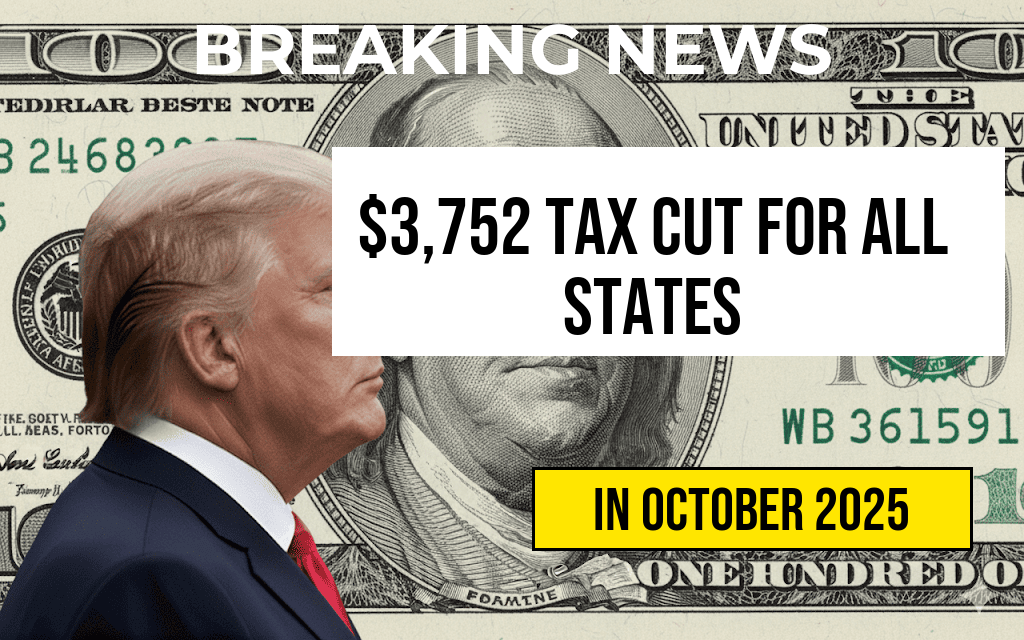Under the newly proposed tax plan announced by President Donald Trump, Maine residents could see an average tax savings of $3,204 per household. The plan, which aims to overhaul the current tax code, targets broad reductions across income brackets and promises to streamline filing processes. According to preliminary analyses by tax experts and economic think tanks, Maine taxpayers—particularly middle-income families—stand to benefit most from the adjustments. While the specifics of the legislation are still subject to congressional approval, early estimates suggest that millions of residents nationwide could experience noticeable financial relief, positioning Maine as one of the states with significant individual tax savings.
Understanding the Proposed Tax Changes
The Trump administration’s proposal seeks to simplify the tax code by lowering the top income tax rate, increasing standard deduction amounts, and reducing various tax credits. Key features include:
- Lowered income tax rates across most brackets, with the top rate decreasing from 39.6% to 35%.
- Increased standard deduction from $12,700 to $24,000 for married couples filing jointly, making itemized deductions less critical for many filers.
- Elimination of certain tax credits such as personal exemption deductions, while expanding others like the child tax credit.
- Business tax reforms aimed at stimulating economic growth, indirectly benefiting individual taxpayers through potential job creation and wage increases.
Projected Impact on Maine Residents
Specific to Maine, tax analysts estimate that households earning between $50,000 and $100,000 annually will see the largest savings, averaging approximately $3,204. This projection considers current Maine income distributions and federal tax brackets, factoring in the state’s unique tax structure and deductions.
| Income Range | Average Savings | Percentage Reduction |
|---|---|---|
| $50,000 – $75,000 | $2,950 | 4.2% |
| $75,001 – $100,000 | $3,204 | 3.7% |
| $100,001 – $150,000 | $2,850 | 2.9% |
While wealthier households might see smaller percentage reductions, the cumulative effect across the middle class is expected to be substantial. Tax experts from the Internal Revenue Service and independent economic research firms have highlighted that the plan could boost disposable income for many Maine families, potentially spurring increased consumer spending and local economic activity.
Political and Economic Reactions
Reactions to the proposed tax reforms have been mixed. Supporters argue that the plan will foster economic growth, create jobs, and provide immediate financial relief to middle-class Americans. “This plan simplifies the tax code and puts more money back into the hands of hardworking families,” stated White House economic adviser Larry Kudlow.
Opponents, however, caution that the plan could disproportionately benefit higher-income individuals and increase federal deficits. Maine’s Democratic representatives have expressed concerns that the legislation may favor the wealthy while offering limited structural benefits to lower-income residents. Critics also point out that the long-term fiscal implications could challenge the state’s budget stability, especially given Maine’s reliance on federal funding and state taxes.
Implications for Maine’s Economy and Tax Policy
The potential tax savings could influence Maine’s economic landscape by increasing household purchasing power. Small business owners, a significant segment of the state’s economy, may also benefit from the proposed reductions in business tax rates. However, analysts emphasize that the actual impact will depend on congressional negotiations and whether the final legislation aligns with the administration’s initial framework.
Moreover, Maine’s existing tax policies—such as the state income tax structure and property taxes—will continue to play a crucial role in shaping overall financial outcomes for residents. The Maine Revenue Services department has yet to release detailed projections, but early estimates suggest that combined federal and state tax changes could result in notable savings for many households.
Looking Ahead
The legislative process remains uncertain, with debates expected to intensify in Congress over the coming weeks. While the potential for average tax savings of $3,204 for Maine residents creates a compelling narrative, policymakers will need to balance economic growth ambitions with fiscal responsibility. For residents, these proposals underscore the importance of staying informed about ongoing policy developments and preparing for potential changes in tax obligations.
As the debate unfolds, residents and analysts alike will monitor how the legislation evolves and what that means for Maine’s economy. For further details on federal tax policy and how it interacts with state income taxes, resources like Wikipedia’s overview of U.S. taxation offer comprehensive background information.
Frequently Asked Questions
What is the average tax savings for Maine residents under Trump’s new plan?
Under Trump’s new plan, Maine residents can expect an average tax savings of $3,204.
How does Trump’s new tax plan benefit residents of Maine?
The plan provides significant tax reductions that lead to average savings of $3,204 for Maine residents, potentially increasing their disposable income.
Are the tax savings consistent across all income levels in Maine?
The average savings of $3,204 may vary depending on individual income levels, with higher earners possibly seeing greater benefits.
When will Maine residents start to see these tax savings?
Tax savings are expected to be reflected in the upcoming tax filings, following the implementation of Trump’s new tax plan.
Does this tax plan affect federal or state taxes for Maine residents?
The plan primarily impacts federal taxes, resulting in an average reduction of $3,204 for Maine residents, while state taxes may be affected differently.








